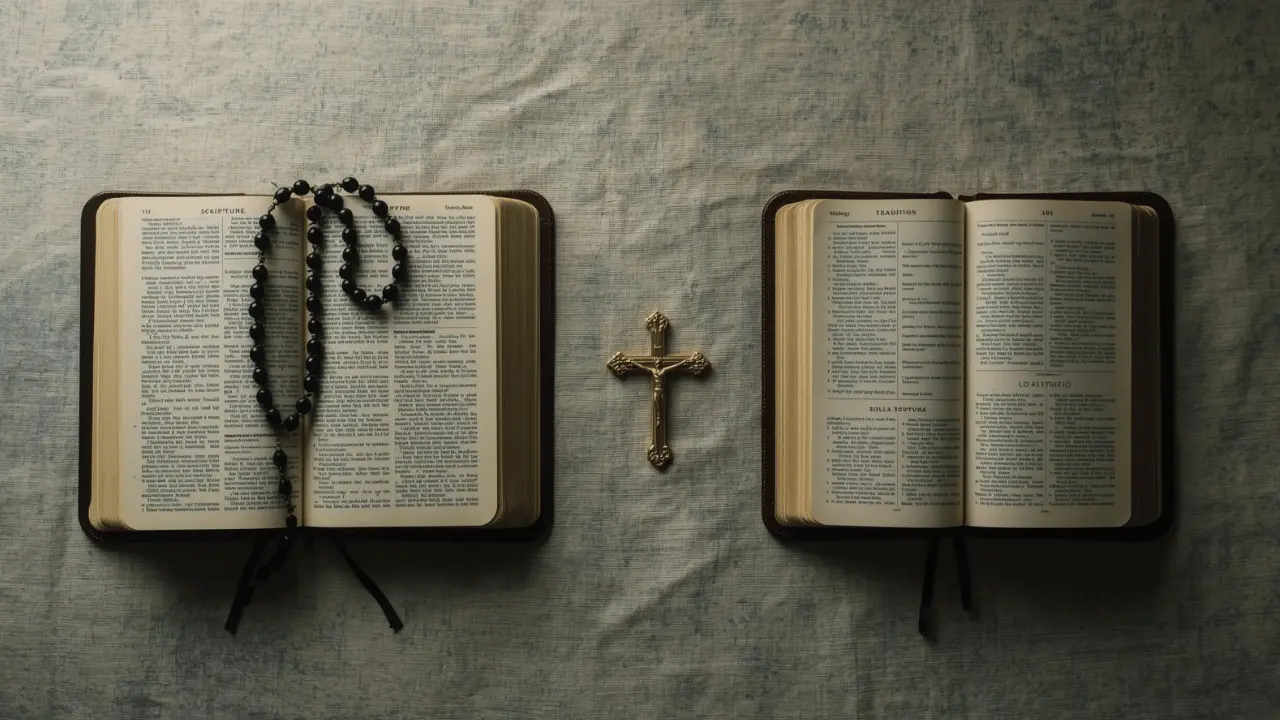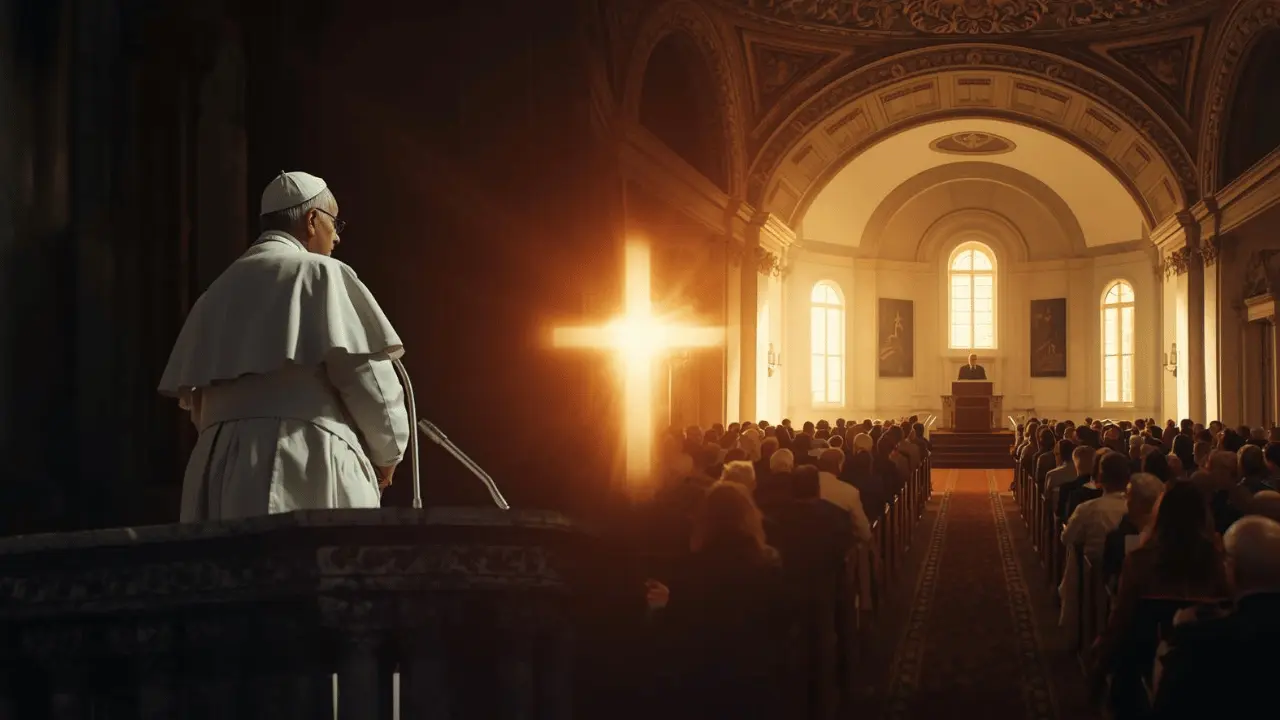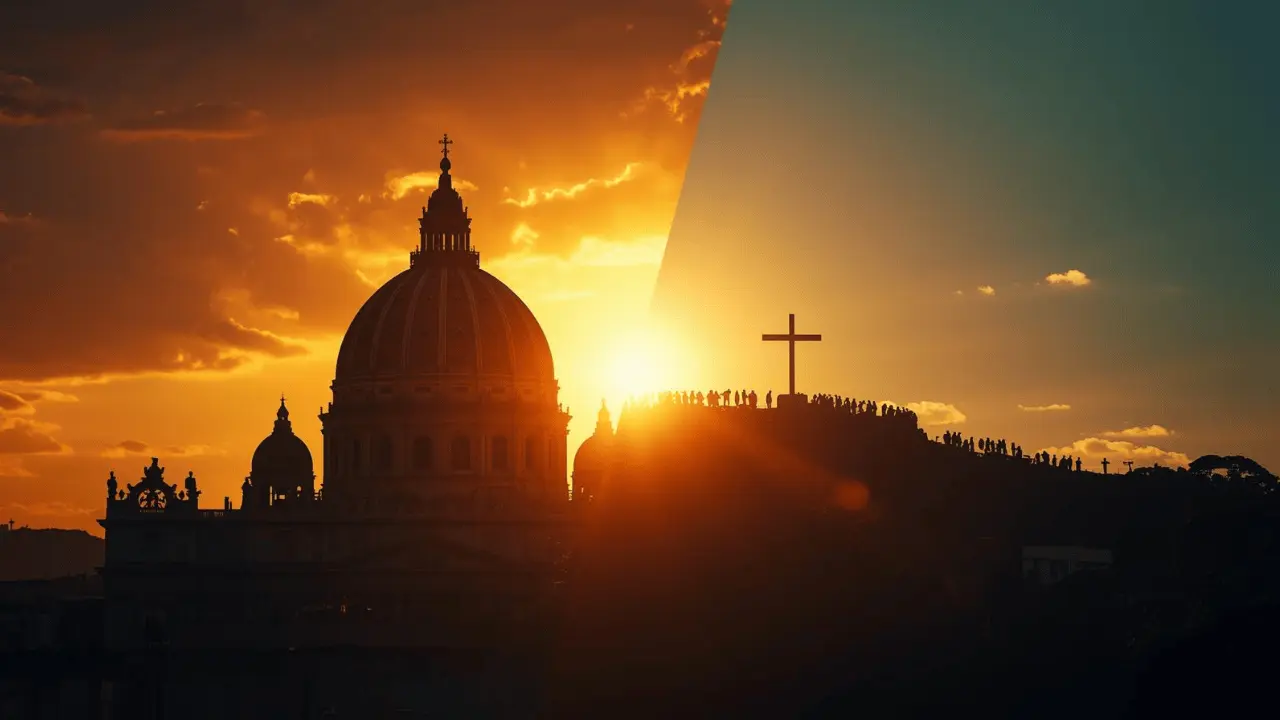Untangling the Misunderstanding
Few topics stir as much curiosity — and confusion — as the relationship between Catholicism and Christianity. People often wonder: “Are Catholics Christians?” or “What sets Catholicism apart from other Christian traditions?”
The short answer: yes, Catholics are Christians — but not all Christians are Catholic.
This misunderstanding usually stems from how Christianity evolved over the centuries. Catholicism, one of the oldest and largest branches of the faith, represents just one of many ways followers of Jesus interpret His teachings.
1. Understand the Roots of Christianity
The Birth of the Christian Faith
Christianity began in the first century A.D., rooted in the life, death, and resurrection of Jesus Christ. His earliest followers — a small group within Judaism — believed He was the promised Messiah. They spread His message across the Roman Empire, emphasizing love, forgiveness, and faith in God’s grace.
As Christianity spread, cultural and regional influences shaped different interpretations and traditions. These variations eventually blossomed into the many denominations that make up the Christian world today.
How Catholicism Emerged as the First Organized Church
The Catholic Church traces its origins directly to the apostles, especially Peter, whom Catholics believe Jesus appointed as the leader of His followers. According to tradition, the line of popes continues this apostolic leadership, forming an unbroken chain from the first century to today.
For over a thousand years, Catholicism was essentially the form of Christianity. It wasn’t until the Protestant Reformation of the 16th century that significant divisions emerged, leading to new denominations such as Lutheranism, Anglicanism, and later, Evangelicalism.
2. Defining the Core Differences

Scripture and Authority: Who Interprets God’s Word?
Both Catholics and other Christians hold the Bible as sacred and divinely inspired. The main difference lies in how its message is interpreted.
- Catholics rely on both Scripture and Sacred Tradition. Church councils, teachings, and the papacy play a role in interpreting Scripture within a unified framework.
- Protestant Christians follow the principle of sola scriptura — “Scripture alone.” They believe the Bible is the sole, sufficient guide for faith and practice, independent of additional Church traditions.
This key distinction explains much of the theological diversity within Christianity today.
Salvation and Grace: Faith vs. Works
Another fundamental difference lies in the understanding of salvation — how a person is saved and reconciled with God.
- Catholic teaching holds that faith and good works are inseparable. Grace is freely given by God, but living a life of charity, repentance, and obedience reflects genuine faith.
- Protestant theology, rooted in Martin Luther’s teachings, emphasizes faith alone (sola fide). Good works naturally flow from faith but are not a requirement for salvation.
Despite these differences, both traditions share a vital truth: salvation comes through Jesus Christ alone.
3. Rituals, Sacraments, and Worship
The Central Role of the Sacraments
Catholicism is deeply sacramental, recognizing seven sacraments — Baptism, Confirmation, Eucharist, Penance (Confession), Anointing of the Sick, Holy Orders, and Matrimony. These are considered tangible channels of God’s grace.
Most Protestant denominations recognize only two sacraments — Baptism and Communion — and view them as symbolic acts of faith rather than literal means of grace.
How Worship Differs Across Traditions
Catholic worship centres on the Mass, a structured liturgy culminating in the Eucharist, which Catholics believe is the real presence of Christ in the bread and wine. The ceremony’s formality and symbolism reflect centuries of sacred tradition.
In contrast, Protestant services often emphasize preaching, prayer, and music. Depending on the denomination, worship can range from traditional liturgies (as in Anglican or Lutheran churches) to modern, spontaneous gatherings (as in Evangelical or Pentecostal communities).
4. The Role of Mary and the Saints
Veneration vs. Worship
One of the most recognizable distinctions between Catholicism and other Christian branches is the veneration of Mary and the saints. Catholics honour Mary as the mother of Jesus and look to the saints as role models who can intercede in prayer. This is not considered worship — worship is reserved for God alone — but rather a sign of reverence for holy lives.
Many non-Catholic Christians view this practice cautiously, choosing instead to pray directly to God through Jesus Christ as the sole mediator.
Icons, Statues, and Symbolism
Catholic churches often include statues, icons, and candles that help believers reflect on the mysteries of faith. These symbols serve as reminders of spiritual truths and sacred history. Protestant churches, especially those in the Reformed tradition, tend to favour simplicity, focusing more on Scripture and preaching than on imagery or ritual.
5. Leadership and Structure

The Pope and the Magisterium
Catholics recognize the Pope as the earthly head of the Church and the successor of Saint Peter. Together with bishops and cardinals, he forms the Magisterium, the body that defines and preserves Church doctrine.
Protestant Christians generally reject centralized authority. Leadership structures vary widely, with most denominations governed locally by pastors, elders, or congregational boards.
Unity and Diversity in the Body of Christ
While Catholicism emphasizes unity under a single Church and teaching authority, Protestantism embraces a diversity of interpretation and expression. This flexibility has given rise to thousands of Christian denominations around the world, each offering its own unique cultural and theological identity.
6. Modern Perspectives: Bridging Faith and Dialogue
Ecumenism and Shared Values
In recent decades, Christians have made meaningful progress toward ecumenism — efforts to build understanding and unity across denominations. Catholics and Protestants increasingly work together in humanitarian missions, education, and interfaith dialogue, focusing on shared faith rather than differences.
Examples include joint Bible translations, global prayer initiatives, and charitable projects — all driven by the shared mission of serving others and spreading God’s love.
A Shared Faith in Christ
At the core of both Catholic and Protestant traditions is a steadfast belief in Jesus Christ as Lord and Savior. Despite differing doctrines and practices, this faith unites more than two billion Christians worldwide. Whether through praying the rosary or singing contemporary worship songs, the heart of Christianity remains the same — a personal relationship with a loving, living God.
Beyond Labels, Toward Understanding
When seen from a broader perspective, the differences between Catholicism and Christianity are not lines of division but threads in a shared spiritual story. Catholicism reflects the ancient, sacramental depth of the faith, while Protestant and other Christian movements embody its diversity and renewal across time and culture.
Ultimately, what binds all believers together is Jesus Christ — the cornerstone of faith, love, and redemption. Whether it’s the incense of a cathedral or the music of a modern worship band, the message endures: love God, and love others.


1 thought on “Catholicism and Christianity Compared: Beliefs, Practices, and Origins”